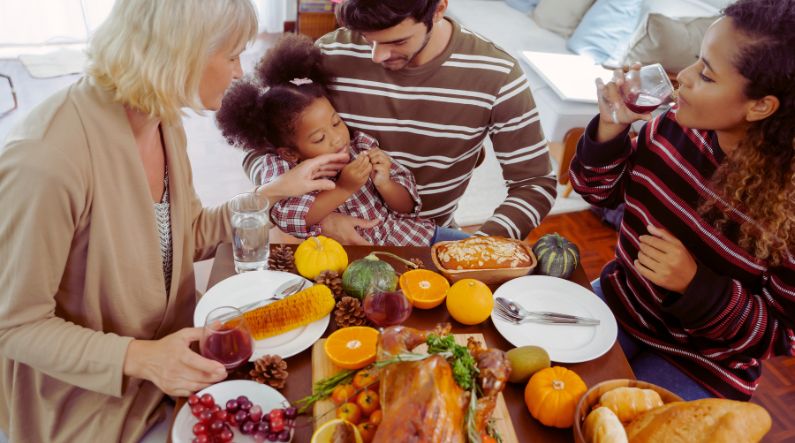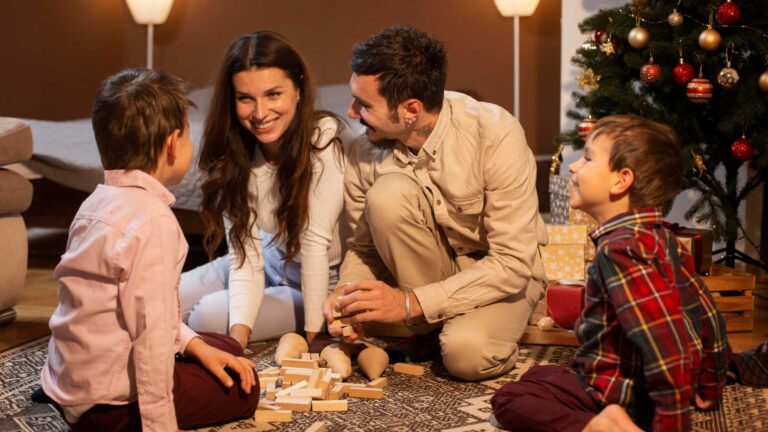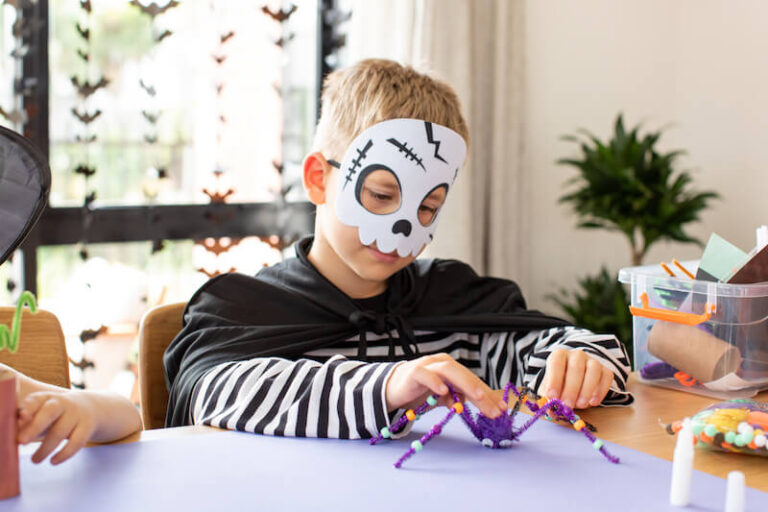Table of Contents
How can families create a more autism-friendly Thanksgiving?
The holidays can bring warmth, togetherness, and gratitude. But for a child with autism spectrum disorder (ASD) or any family member who thrives on predictability, the flurry of new faces, shifting routines, unfamiliar foods, and sensory surprises that come with Thanksgiving can feel overwhelming.
These factors leave many preparing for the holiday asking: How can families create a more autism-friendly Thanksgiving?
For many, the answer lies in thoughtful preparation, clear communication, and creating sensory-safe spaces that help children feel supported rather than stressed.
This guide from ABA Centers of Washington will explore seven practical ways families can prepare for a more peaceful, inclusive, and sensory-friendly Thanksgiving.
We’ll also discuss simple strategies for an autism-friendly Thanksgiving, including communication, emotional regulation, and reducing holiday stress, so the day feels more joyful and less chaotic!
So, keep reading and learn how to shift from holiday overwhelm to holiday confidence with doable adjustments and ABA insights that genuinely make a difference.
Discover more about ABA Centers of Washington here. To read more of our blogs on autism-friendly routines, sensory-friendly ideas, family coaching, and more, click here.
7 Autism-Friendly Thanksgiving Strategies
1. Preview the Day in Advance
Predictability is a huge comfort to many children on the autism spectrum. Several days before Thanksgiving, it’s helpful to talk with your child about what the day may look like.
Be sure to discuss:
- Who will be there
- What foods will they serve
- What the home environment is like
- What they can expect if things change
Visual schedules, photos, and simple step-by-step breakdowns can significantly reduce anxiety around transitions and unfamiliar events. Research shows that visual supports can help children better anticipate routines and reduce stress.
For example, consider creating a simple timeline that helps them understand transitions and how they will happen. For example, “car ride → arrive → help set table → eat → quiet time → dessert.”
2. Maintain Key Routines & Known Anchors
Even though Thanksgiving is just one day, maintaining familiar routines can help your child stay regulated and confident.
Try keeping morning routines, bedtime rituals, or favorite snack times consistent. A few predictable elements help balance out the new or unpredictable aspects of the holiday.
Routine disruptions are among the most common triggers for holiday-related stress in children with ASD. Sticking to what your child knows even loosely provides a sense of stability and an extra layer of confidence.
3. Create a “Calm Zone” & Sensory Toolkit
Thanksgiving gatherings often involve sensory overload: loud conversations, intense food aromas, bright lights, clinking dishes, and lots of movement.
To help mitigate this, create a calm space, quiet room, or pop-up tent that features a corner with pillows, where your child can reset if they need to. A portable sensory kit can also be incredibly valuable.
Include items like:
- Noise-canceling headphones
- Fidget toys
- Chewelry
- A weighted lap pad
- A favorite stuffed animal or comfort object
Research shows that up to 90% of individuals with ASD experience sensory issues uniquely, making proactive support essential. For many, this comes in the form of ABA therapy, also called Applied Behavior Analysis.
4. Communicate With Relatives and Guests Beforehand
Sometimes the most challenging part of Thanksgiving isn’t the food, it’s the social expectations. Hugs, handshakes, long conversations, or sudden greetings may feel overwhelming to your child.
Sending a quick message to relatives helps set the tone, for example:
“Just a heads-up! Jamie may wave instead of hugging, and we’re trying to keep transitions gentle today.”
Most family members appreciate being included in the plan and feel grateful for the clarity. Families may also find it helpful to share a short “guest guide” with their children or hosts before holiday events.
5. Focus on Strengths by Giving Your Child a Role
Children thrive when they feel helpful and included. Assigning a simple, strength-based role can help them feel engaged without pressure.
Try offering your child a job like:
- Folding napkins
- Placing centerpieces
- Passing out utensils
- Choosing a playlist
- Setting a small section of the table
These structured responsibilities promote confidence, independence, and participation on their terms. These are all core principles in ABA-based support strategies.
6. Respect Food Preferences & Introduce New Options Slowly
Food can be a significant source of stress for children with autism due to texture sensitivities, selective eating patterns, and familiar brand preferences.
Instead of pushing new foods, offer a balanced approach:
- Bring your child’s “safe foods”
- Introduce new dishes slowly and without pressure
- Offer tiny tastes alongside something they already enjoy
These methods help keep the meal enjoyable and reduce the likelihood of food-related meltdowns.
7. Celebrate Moments, Not Perfection!
An autism-friendly Thanksgiving doesn’t need to look like a picture-perfect celebration. Make sure to honor the small wins.
Consider gains like:
- Your child sat at the table for a few minutes
- They greeted a relative in their own preferred way
- They used their calm space independently
These are meaningful moments worth acknowledging. Focus on what’s going well rather than what’s missing.
Celebrating a Peaceful, Sensory-Friendly Holiday with Your Neurodiverse Family is Possible
Thanksgiving is a fantastic opportunity to connect, reflect, and show gratitude. With thoughtful planning tailored to your child with ASD’s needs and ABA support, the holiday can feel supportive, predictable, and enjoyable for the entire family!
So, get out there and plan! Happy autism-friendly Thanksgiving from ABA Centers of Washington!
More About ABA Centers of Washington
If your family needs extra support for your child or teenager on the spectrum, ABA Centers of Washington is here to help.
We offer ABA services that include assisting families during the holidays or year-round with in-home ABA, school support, diagnosis, and more.
Contact ABA Centers of Washington online or call us at (877) 554 – 0710 to schedule a free consultation.
Wishing your family a peaceful, inclusive, and gratitude-filled holiday, this year and next.






